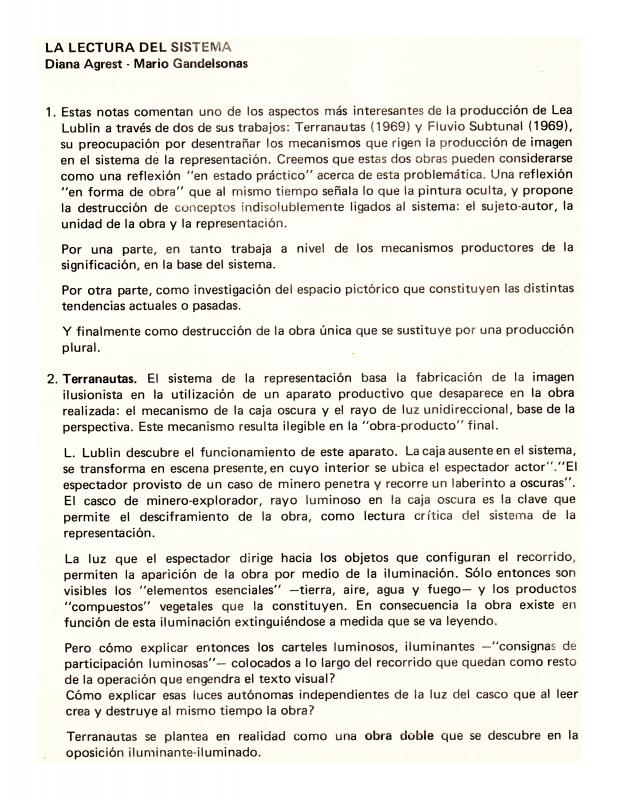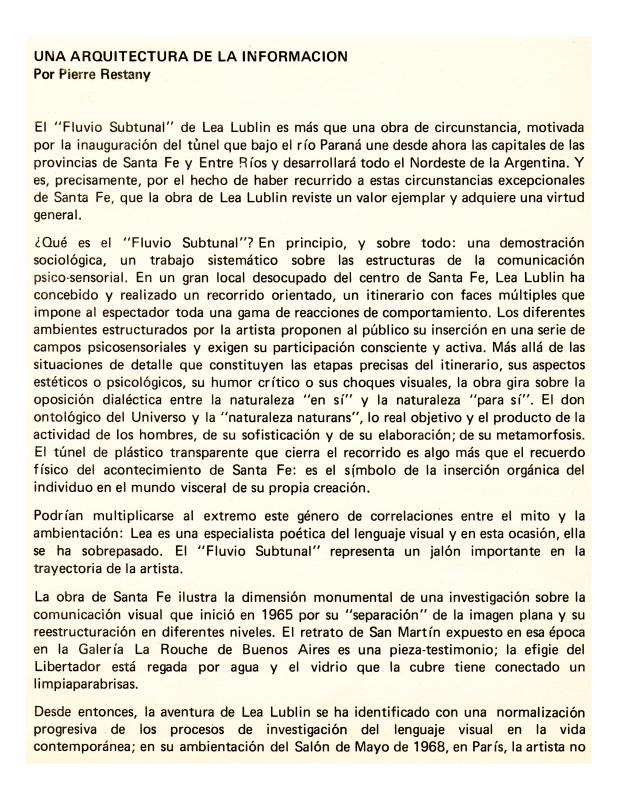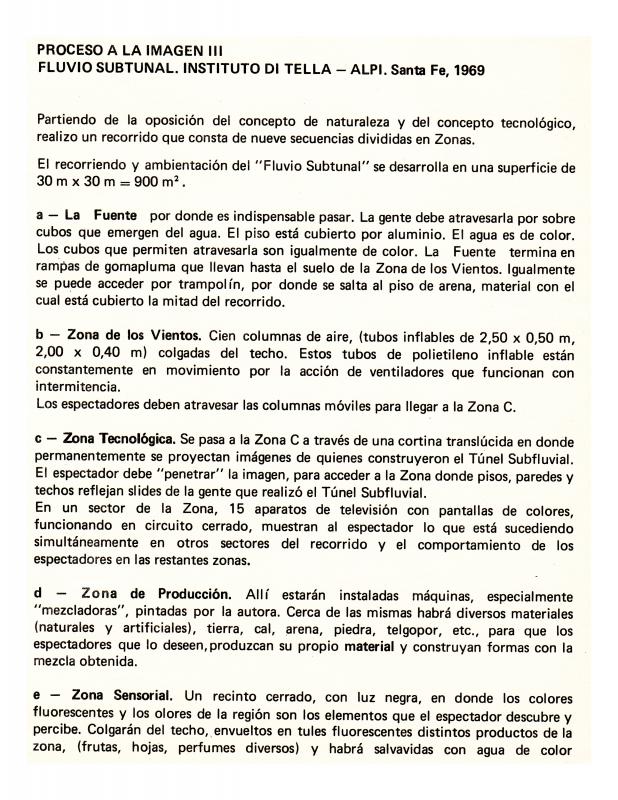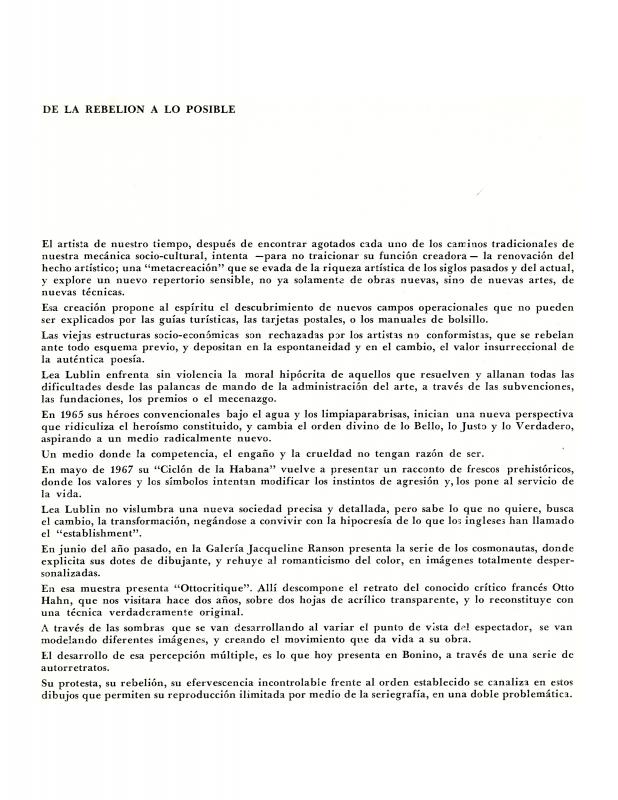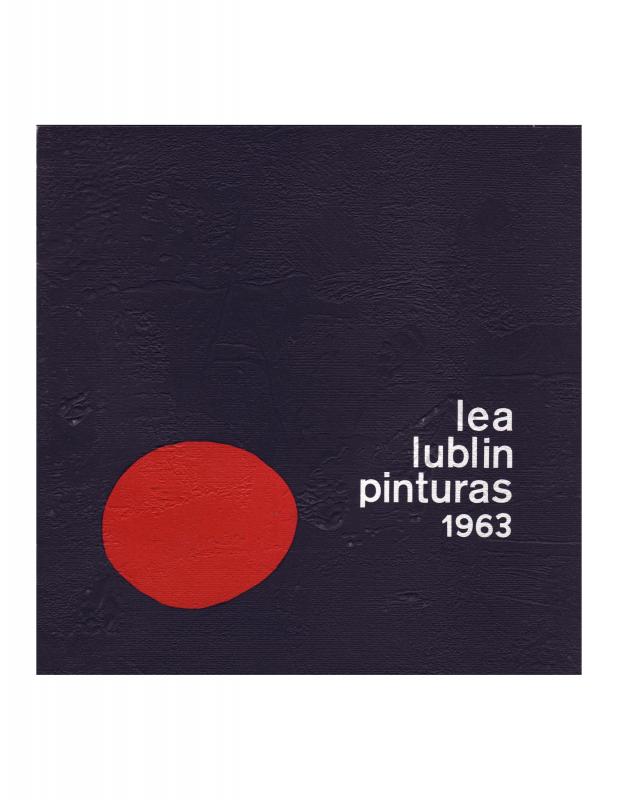Lea Lublin (Buenos Aires, 1929), a resident of Paris since the 1960s, was a distinguished, innovative conceptual artist in Argentina, above all, for taking advantage of technology in her art. The text of this document corresponds to her work Fluvio created for the inauguration of the subfluvial tunnel, which linked the cities of Santa Fe and Paraná, capital of the Entre Ríos Province, under the Paraná River. It was the most important work of engineering in Argentina at the time. Lublin’s environment was produced with the sponsorship of Instituto Torcuato Di Tella and the Asociación de Lucha contra la Parálisis Infantil [Victims of Infantile Paralysis Association]. In fact, several environments were looking to stimulate the observer around the same time, such as La menesunda [The Hodgepodge] (Marta Minujin and Rubén Santantonín,1965), Importación-exportación [Import-Export] (Marta Minujín,1968), Barbazul [Bluebeard] (Luis Fernando Benedit and Vicente Lucas Marotta,1966), and Terranautas [Terranauts] by Lublin herself. Document compiled in the catalogue for the 1970 exhibition at Galería Carmen Waugh where she exhibited the photographs of her works. They were projected on movable screens, realized by Humberto Rivas, Pedro Roth, Fermín Cardona, Robert Phillips, and César Caldarella.The French critic and gallery owner Pierre Restany (1930–2003) established strong links with the Argentinean art scene from the 1970s until his death. The text of this document corresponds to an analysis of Lea Lublin’s installation Fluvio Subtunal, created in 1969, in accordance with Restany’s interest in sociological art, as well as in works that function as sensory stimulus for the viewer. See documents Proceso a la imagen [Process to the Image] (numbers 766896; 766884; and 766873). About Lea Lublin, consult her texts: “De la rebelión a lo posible” [From Rebellion to What is Possible] (document no. 762935) and “Bestias y explosiones” [Beasts and Explosions] (document no. 745062).

